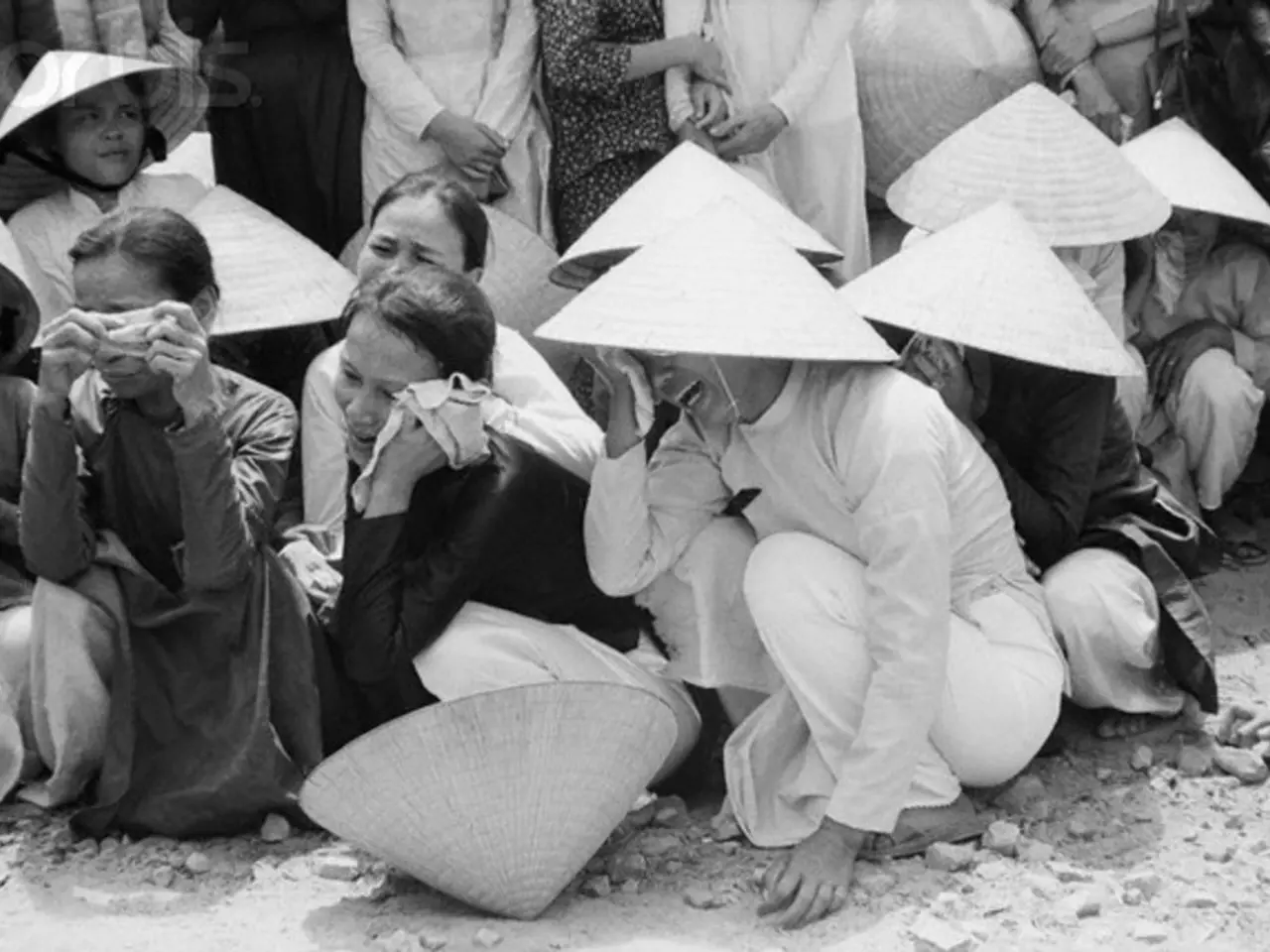Emotional Sorrow: Uncovering the Concealed Psychological Effects of Heritage Loss
In the modern world, cultural mourning has become a significant issue, particularly for communities that have experienced the loss of their traditional ways of life. This phenomenon, often triggered by post-colonial systems, urbanisation, migration, globalisation, and environmental destruction, leads to a sense of alienation and emotional distress.
Cultural mourning arises primarily from the loss of a loved one or significant relationships, deeply shaped by cultural, social, and individual factors. Its causes include the death of close individuals, loss of identity or social roles, and the disruption of meaningful attachments. The effects span emotional pain, identity disruption, social withdrawal, and sometimes prolonged grief disorder—a condition where grief symptoms persist intensely beyond typical cultural expectations.
Effects specifically linked to cultural mourning can include intense emotional pain such as anger, sorrow, and bitterness. Identity disruption causes a feeling that part of oneself has died. Social and behavioral impacts, like avoidance of reminders, difficulty reintegrating with social or family life, emotional numbness, and a sense that life lacks meaning, are also common. Social withdrawal and challenges in engaging with community or relationships are common, sometimes more pronounced in complicated or prolonged grief.
From an evolutionary and social perspective, grief may also serve to signal commitment to social bonds or orient individuals psychologically to a life without the deceased, despite the high personal cost.
Strategies to cope with cultural mourning acknowledge both universal and culture-specific approaches. Acknowledgment and expression of grief, open recognition of loss and emotions, helps validate the experience. Cultural rituals and ceremonies, such as the Aboriginal and Torres Strait Islander practices of not mentioning the deceased's name for long periods and conducting cleansing or smoking ceremonies, support spiritual and emotional healing.
Storytelling and social support, sharing memories and ‘yarning’ foster connection, trust, and community healing. Maintaining cultural practices and rites of passage, like continuing men’s and women’s ceremonies or rites for young people, helps sustain cultural identity and resilience. Professional support, such as counseling or coaching, can provide compassionate strategies to process grief, find meaning, and promote healing, especially in complicated grief scenarios. Mindful coping mechanisms, including allowing oneself time to mourn, engaging in self-care, seeking social support, and possibly spiritual or philosophical reflection on the meaning of loss, are also crucial.
Non-Indigenous caregivers working with Indigenous clients should practice cultural sensitivity by listening deeply, avoiding assumptions, and understanding unique cultural grief expressions and needs.
Efforts under cultural activism and preservation projects act as both resistance and restoration. Rebuilding cultural ties through festivals, language revival, storytelling, and rituals can help restore identity, resilience, and continuity for those going through cultural mourning. Even people from dominant groups can mourn the loss of regional dialects, ancestral customs, rural life, and modernized religious practices.
Culturally sensitive therapy incorporates customs, rituals, and community values into the healing process, acknowledging the profound effects of cultural background, past trauma, and collective mourning on psychological well-being. Healing from cultural mourning is possible through treatment, activism, and cultural revitalization.
In sum, cultural mourning is caused by profound loss, leading to multilayered emotional and social effects. Coping effectively involves a blend of culturally resonant rituals, open emotional expression, social support, and professional help when needed, tailored to the individual’s cultural and personal context.
Science can help research the emotional impacts and cultural practices related to grief and mourning in various communities, providing insights into mental health. Mental health professionals may incorporate culture-specific rituals and healing practices in their therapeutic approaches to support health-and-wellness, focusing particularly on individuals experiencing prolonged emotional distress due to cultural mourning.




